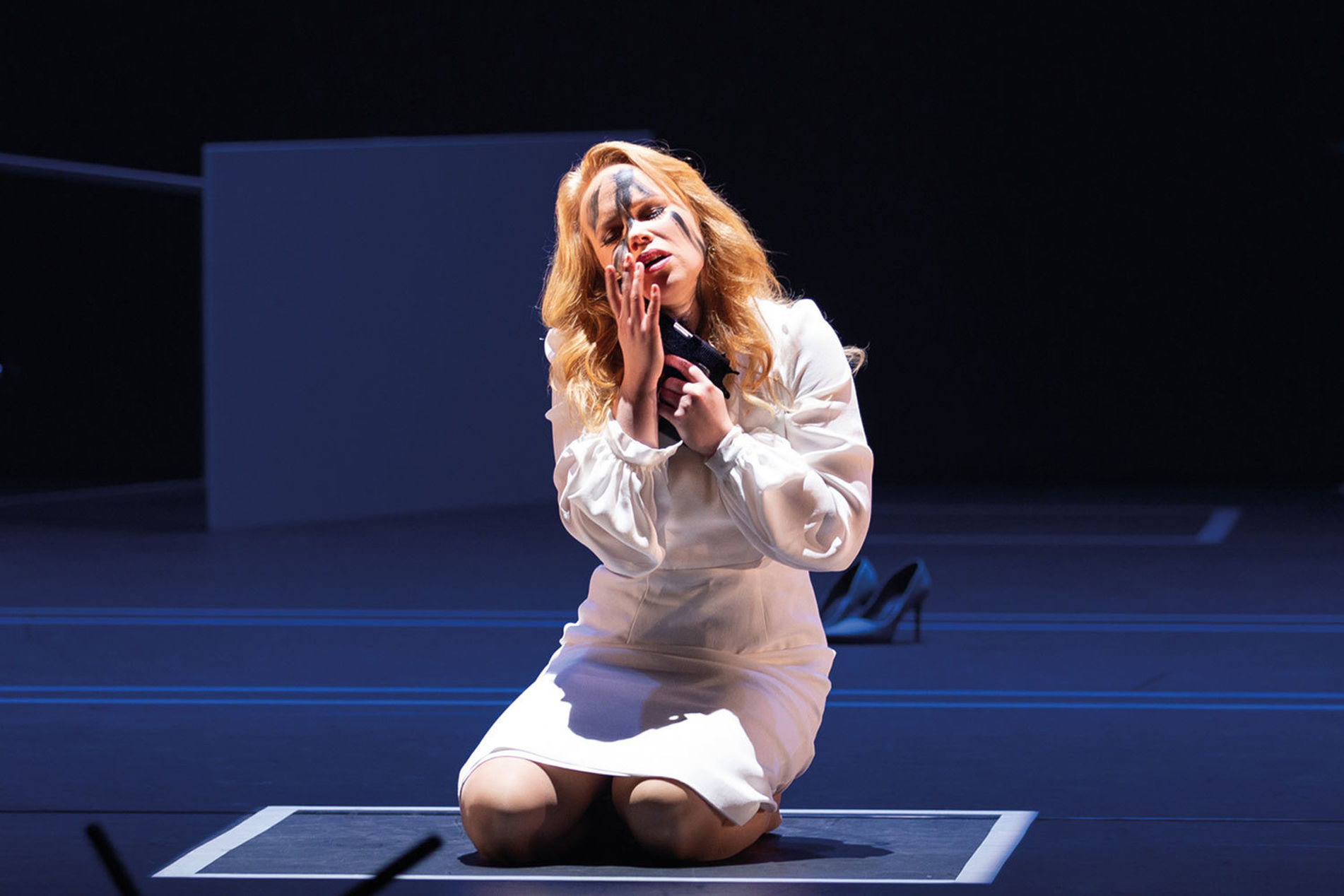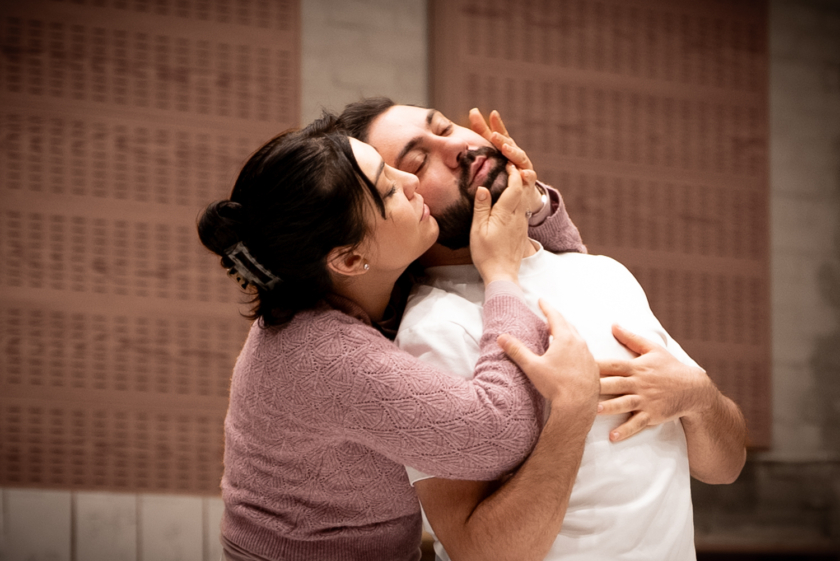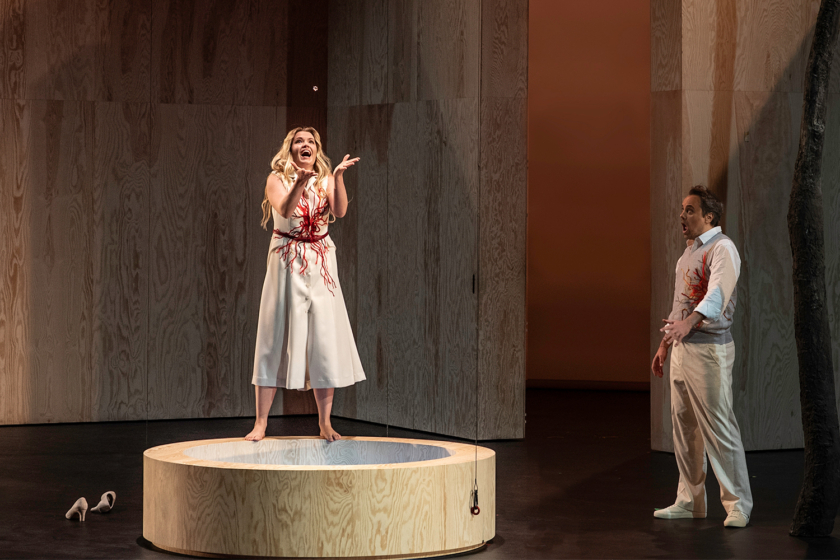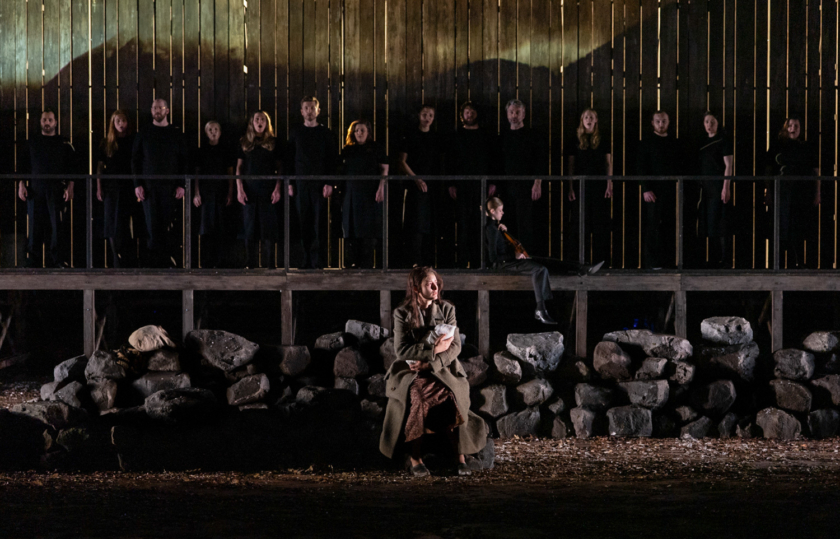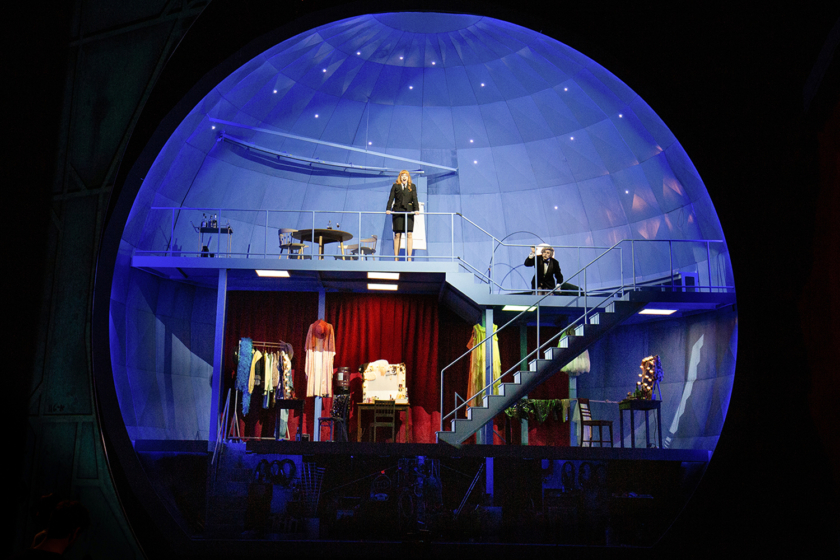BT gir 6 hjerter til La clemenza di Tito
Bergens Tidende gir full pott til Mozart-operaen La clemenza di Tito. Internasjonal presse er også begeistret, les utdrag her.
BERGENS TIDENDE - 6 hjerter
- Det sier noe om de gode musikalske kreftene i dagens Norge at BNO har kunnet produsere denne forestillingen med et helnorsk lag av velfungerende sangere på scenen – og vårt lokale Edvard Grieg Kor med korte, flotte innsatser bak scenen.
- Bror Magnus Tødenes synger keiser Titos parti med imponerende stemmeprakt.
- Den lyriske sopranen Beate Mordal fremstiller den rasende Vitellia og hennes omskiftelige sinn med en lett, lys og veldig bevegelig stemme.
- Bassbarytonen Christian Valle fremstiller livgardens anfører Publio med stor autoritet og legger solid bunn i ensemblepartiene.
Anmelder Peter Larsen skryter av alle sangerne og ville gått på operaen om så bare for å høre den av Edward Gardner og Bergen Filharmoniske Orkester elektrisk fremførte ouverturen.
BALLADE
- Beate Mordal skinner i rollen som Vitellia. Hun er forførende, manipulerende og hevngjerrig til fingerspissene. Til og med når Vitellia er angrende, er hun selvopptatt og forfengelig. Mordal får dette frem med like fine nyanser i spillet som i stemmen.
- Også Bror Magnus Tødenes har en god balanse mellom spill og stemme, og har funnet den rette utstrålingen i rollen som keiseren.
- Til tross for at den er preget av koronarestriksjoner i alle ledd, er Bergen Nasjonale Operas oppsetning av Mozarts «La Clemenza di Tito» en stor opplevelse.
Les hele omtalen på ballade.no
THE SUNDAY TIMES
- Conducted with momentous élan by the Bergen Philharmonic’s music director, Edward Gardner
- Rodula Gaitanou’s smart, vivid direction – relayed on Zoom from London while the cast rehearsed in Bergen – makes a virtue of austerity, projecting the drama grippingly in an abstract setting of squares marked around an oblong space, representing Tito’s seat of power.
- The singing by the young but technically accomplished cast speaks highly of Norwegian Operatic training.
- Bror Magnus Tødenes’s fresh-faced Tito, Beate Mordal’s insistent Vitellia with excellent low notes, and Adrian Angelico’s Sesto would not have been out of place at Glyndebourne or Salzburg.
- Ingeborg Gillebo (Annio), Frøy Hovland Holtbakk (Servilia) – lovely in their sublime Act I duet – and Christian Valle (Publio) completed the cast with distinction.
- An astonishing achievement for one of Europe’s pluckiest small companies.
(Hele omtalen er tilgjengelig kun for abonnenter)
BACHTRACK - 4 (av 5) stjerner
- Tenor Bror Magnus Tødnes has a lustrous Mozartian timbre and colours the Emperor’s benevolence with plenty of interior anguish – he sustains high levels of intensity throughout his second-act scena with Adrian Angelico’s brilliantly sung Sesto – and it’s an epic face-off by both artists.
- Beate Mordal does a fine Vitellia, whose star aria “Non più di fiori” is a high point in Act 2.
- Frøy Hovland Holtbakk as Servilia, Ingeborg Gillebo as Annio and Christian Volle as Publio are all secure and idiomatic, as is the invisible Edvard Grieg Choir.
Les hele anmeldelsen i Bachtrack
THE TELEGRAPH - 4 (av 5) stjerner
- She (Beate Mordal) plays the nastiest of the conspirators Vitellia, spittingfury and impressive vocal pyrotechnics.
- But the real star of the show is the orchestra, above all the player on the basset horn whose sound rapturously entwines with the singers in the opera’s most beautiful arias.
(Hele omtalen er tilgjengelig kun for abonnenter)
OPERA
- Sung with firm, bright and clear tone, and visually presented as a CEO lacking in self-belief, Bror Magnus Tødenes’s Tito ponders long and hard before assuming his chain of office.
- There’s an inherent fierceness to Beate Mordal’s Vitellia (...). Coping well with her part’s wide range, she moves fluently and expressively around the notes.
- Ingeborg Gillebo’s Annio is deeply sympathetic and vocally ideal.
- Gaitanou succeeds in turning its imposed limitations (social distancing) to her advantage. The work’s complex web of personal and power relationships is made perfectly clear.
- Edward Gardner is a conductor with a clear a vision of what he wants, as always he is an energizing presence, his interpretation deliberate yet entirely thought through, and maintaining a keen sense of articulation. From the exciting overture onwards, everything is delivered with a masterly combination of spirit and significance.
(Hele omtalen er tilgjengelig kun for abonnenter)
PLANET HUGHILL
- As Sesto, mezzo-soprano Adrian Angelico brought a classical dignity to the role. Angelico made an appealing Sesto, singing with fluidity and a lovely feeling for line, at times there was almost something Gluckian about his performance.
- The role of Annio can sometime seem something of a dummy run for Sesto, but Ingeborg Gillebo made him a real character, youthful and passionate but not entirely sure of himself. Whilst Frøy Hovland Holtbakk made a charming Servilia making you wish we heard more of her. Christian Valle provided fine support, and brought a sense of upstanding dignity to Publio.
- Despite being unseen, the chorus made a strong contribution to the piece making a smooth even sound.
- From the very outset, Edward Gardner's speeds were fleet and seemingly took no prisoners, but his orchestra responded magnificently and played with style and élan.
Les hele omtalen på Planet Hughill
Kritikkene fra utenlandsk presse er basert på live-streamingen, siden ingen av dem kunne komme til forestillingene i Bergen pga innreise-restriksjonene.


